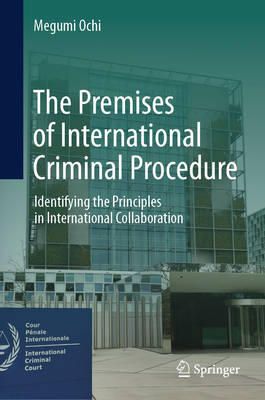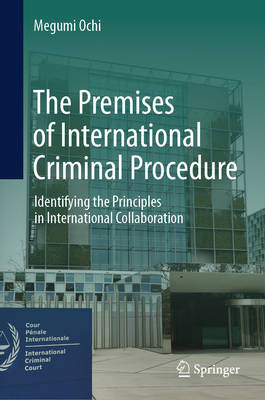
- Afhalen na 1 uur in een winkel met voorraad
- Gratis thuislevering in België vanaf € 30
- Ruim aanbod met 7 miljoen producten
- Afhalen na 1 uur in een winkel met voorraad
- Gratis thuislevering in België vanaf € 30
- Ruim aanbod met 7 miljoen producten
The Premises of International Criminal Procedure
Identifying the Principles in International Collaboration
Megumi OchiOmschrijving
How does international criminal procedure differ from any domestic legal principles and why? What premises of international criminal procedure do give rise to such differences? Can we provide any unified socio-legal explanation for the differences between the procedure of the International Criminal Court and the domestic legal principles? This boils down to the question: what are the premises inherent in international criminal procedure? Applying the premise theory of general principles of law, this book conducts a comparative analysis of various general principles of international criminal procedure with corresponding principles that are valid domestically and in general international law and identifies special premises in the procedural law of the ICC.
This book discloses the four points that have not been identified in previous studies. (A) the fact that the value of international criminal procedure frequently mentioned in previous studies has not actually had much of an impact: (i) the premise of "seriousness of the core crime" has little influence at the procedural level; and (ii) the premise of deterring illegal investigations has little impact. (B) the factors that have not been recognized as circumstances or values on which international criminal procedure is premised in previous research significantly influence international criminal procedure: (iii) the entire procedure is based on the primitive premise of speed and "first come, first served"; and (iv) the impact of the premise of consideration for national sovereignty, which is associated with the fact that the ICC is an international organization based on a treaty, is critical. The ICC's institutional premises of the value of expeditiousness and lacking centralized control over its "limbs" have had a significant impact on the various aspects of international criminal procedure.
Specificaties
Betrokkenen
- Auteur(s):
- Uitgeverij:
Inhoud
- Aantal bladzijden:
- 209
- Taal:
- Engels
Eigenschappen
- Productcode (EAN):
- 9789819767854
- Verschijningsdatum:
- 23/11/2024
- Uitvoering:
- Hardcover
- Formaat:
- Genaaid
- Afmetingen:
- 156 mm x 234 mm
- Gewicht:
- 512 g

Alleen bij Standaard Boekhandel
Beoordelingen
We publiceren alleen reviews die voldoen aan de voorwaarden voor reviews. Bekijk onze voorwaarden voor reviews.











